Maria Lopez was thriving.
Her tomato farm in rural Guatemala was flourishing since a worker from the Universidad del Valle de Guatemala (UVG) came in to show her climate-smart agricultural practices in her drought-stricken community.
“Thanks to their help, the redemption of the tomato in my greenhouse was successful,” Lopez said.
The worker was funded through a United States Agency for International Development (USAID) program called the Feed the Future Initiative. Feed the Future has many programs, but the one Lopez benefited from was the Lab for Horticulture run by University of California, Davis (UC Davis). Specifically, the employee worked for a project called the UVG Climate Smart Agriculture Project to help farmers affected by climate change in the region.
This project helped Lopez and 3,000 other Guatemalan farmers revive their farms.
But recently, Lopez has found herself back at square one.
President Donald Trump in late February cut 90 percent of USAID foreign aid contracts, including the one helping Lopez’s farm.
USAID was established on Nov. 3, 1961, when President John F. Kennedy signed an executive order titled “Administration of Foreign Assistance and Related Functions.” Kennedy said USAID permits the U.S. to exert their influence to maintain freedom in countries under nondemocratic rule.
“The people who are opposed to aid should realize that this is a very powerful source of strength for us,” Kennedy said in an address to the inaugural USAID Overseas Mission Directors.
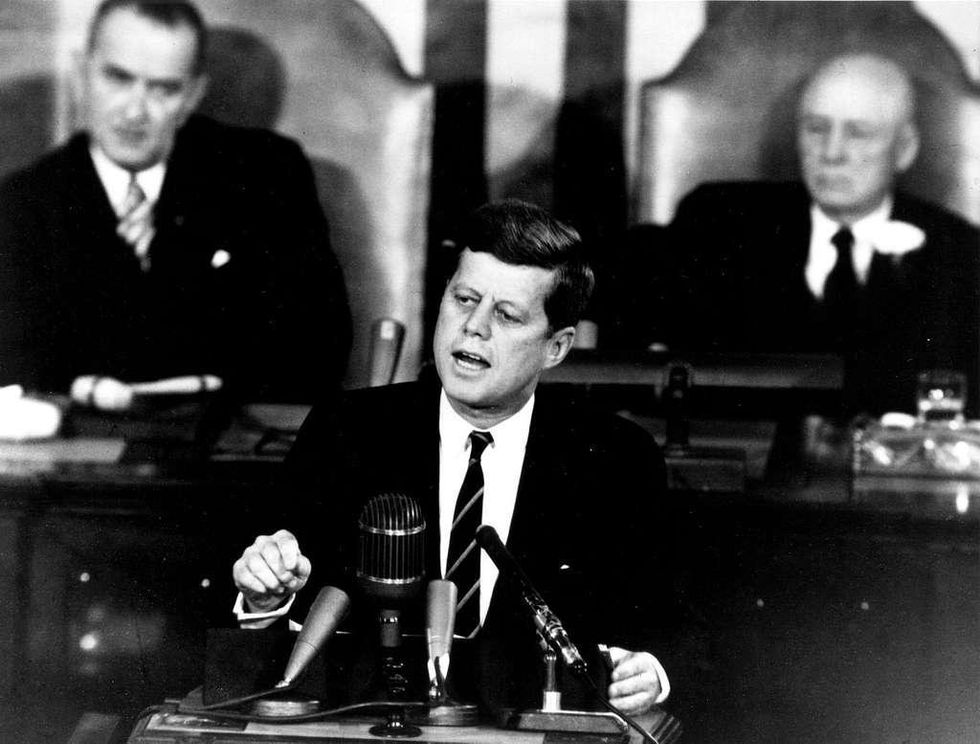 President John F. Kennedy giving an address to Congress on May 25, 1961. Permission for use granted via Creative Commons Licenses.
President John F. Kennedy giving an address to Congress on May 25, 1961. Permission for use granted via Creative Commons Licenses.
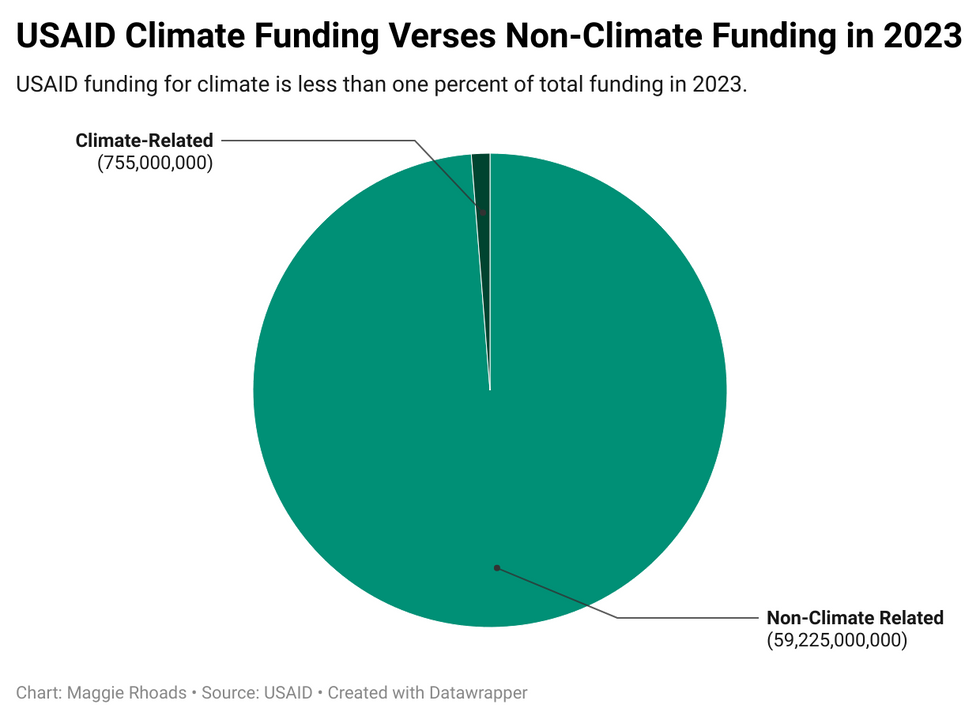 USAID Climate Funding Verses Non-Climate Funding in 2023 Maggie Rhoads | USAID
USAID Climate Funding Verses Non-Climate Funding in 2023 Maggie Rhoads | USAID
But the Trump administration undid Kennedy’s order by signing its own executive order, titled “Reevaluating and Realigning United States Foreign Aid,” on Jan. 20.
Trump has also remained skeptical on climate change, including calling it a hoax on many occasions. This contrasts the 97 percent of scientists who have concluded climate change is caused by humans.
“We don’t have a global warming problem,” Trump said at a campaign rally on Nov. 3, two days before the 2024 presidential election.
During his 2024 presidential campaign, Trump also pledged an “America First” agenda, now posted on the White House website. The agenda states it will make America safe again, make America affordable and energy dominant again, bring back American values, and drain the swamp, or work to make the government more efficient.
Previously, the State Department and USAID worked together to support U.S. national interests through hard and soft power. But the Trump administration’s dismantling of USAID has involved transferring some function to the State Department.
The State Department did not respond to a request to comment.
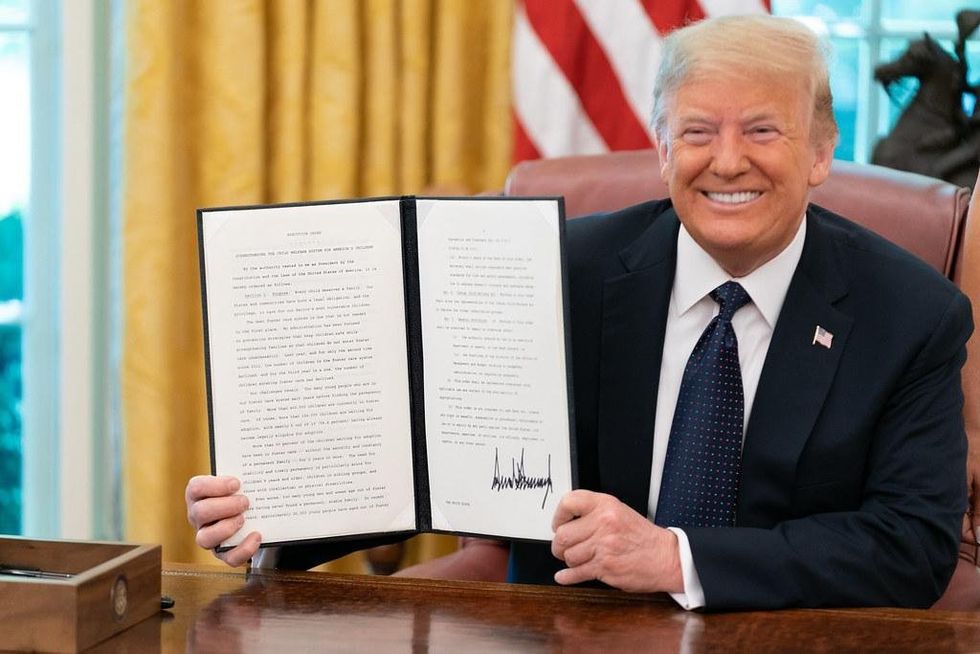 President Donald J. Trump signing an executive order on June 24, 2020. Permission for use granted via Creative Commons Licenses.
President Donald J. Trump signing an executive order on June 24, 2020. Permission for use granted via Creative Commons Licenses.
Henry Lee is the Jassim M. Jaidah Family Director of the Environment and Natural Resources Program within the Belfer Center for Science and International Affairs at the Harvard Kennedy School. He said the cut of USAID programs will have long-term impacts on various institutions and services and that more people will be affected as time goes on.
“It’s going to have large implications on a lot of the programs that have to do with basic human rights,” Lee said, adding the cut will also have an effect on those affected by climate change.
Lee said he cannot get into Trump’s head but his decisions so far suggest climate change is a “non-issue” for his administration.
The United States foreign aid industry and bureaucracy are not aligned with American interests and, in many cases, antithetical to American values. They serve to destabilize world peace by promoting ideas in foreign countries that are directly inverse to harmonious and stable relations internal to and among countries.
Back in Guatemala, the project was previously run by Rolando Cifuentes Velásquez, a soil science professor at UVG.
Cifuentes Velásquez said he met with officials from UC Davis in 2022 to discuss the UVG Climate Smart Agriculture Project. Eventually, he was given a grant of $750,000 to put his work on the ground, beginning in fall 2023.
With this money, Cifuentes Velásquez sends volunteers into the field to help people like Lopez revive their farms affected by climate change.
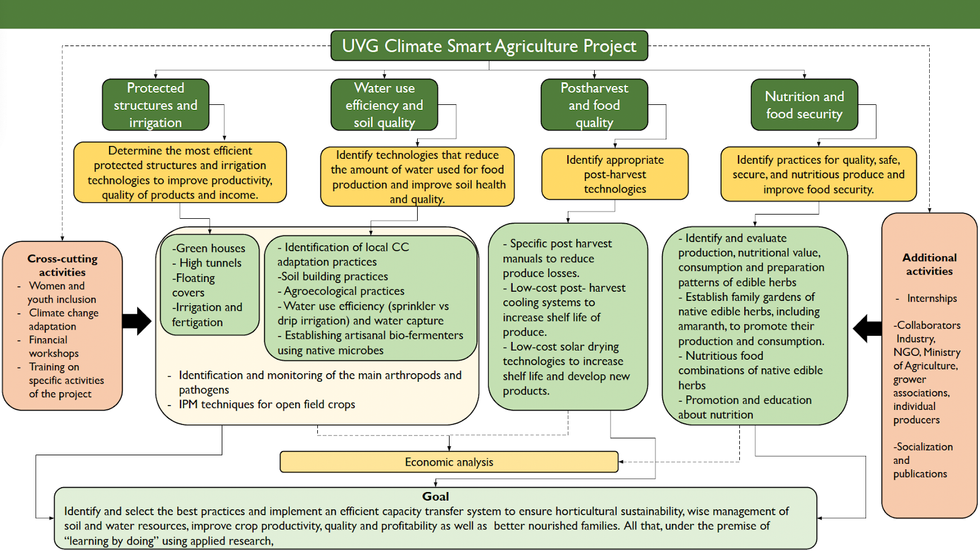 Flow chart of goals set by the UVG Climate Smart Agriculture Project Courtesy of Rolando Cifuentes Velásquez.
Flow chart of goals set by the UVG Climate Smart Agriculture Project Courtesy of Rolando Cifuentes Velásquez.
Cifuentes Velásquez said one method workers use to help revive farms is to put agrotextile sheets, held up by bamboo pools, over crops like tomatoes. The goal of this method is to get rid of insects that might kill crops and to control the growing temperature.
Research from American University states Guatemala is disproportionately affected by climate change as the country sees more frequent and intense droughts, floods, and other extreme weather events.
These events affect the amount of food grown in Guatemala as droughts can cause problems like food insecurity and malnutrition in children.
 Food Insecure versus Non-Food Insecure Citizens inGuatemala in 2023 Maggie Rhoads
Food Insecure versus Non-Food Insecure Citizens inGuatemala in 2023 Maggie Rhoads
With projects like Cifuentes Velásquez’s coming in to assist farmers affected by climate change around the country, crop production has increased.
Between 2019 and 2023, Guatemala saw only 2,668 thousand tons of food grown. This number has increased between 2024 and the predicted number for 2025 is 2,709 thousand tons of food.
“The profitability of the innovation is really high,” Cifuentes Velásquez said.
 First Picture: The agrotextile and bamboo poles set up in the tent just as the tomatoes were planted. | Courtesy of Rolando Cifuentes Velásquez. Second Picture: Tomato plants beginning to grow. | Courtesy of Rolando Cifuentes Velásquez. Third Picture: Tomato plants almost fully grown in the agrotextile tent. | Courtesy of Rolando Cifuentes Velásquez. Rolando Cifuentes Velásquez
First Picture: The agrotextile and bamboo poles set up in the tent just as the tomatoes were planted. | Courtesy of Rolando Cifuentes Velásquez. Second Picture: Tomato plants beginning to grow. | Courtesy of Rolando Cifuentes Velásquez. Third Picture: Tomato plants almost fully grown in the agrotextile tent. | Courtesy of Rolando Cifuentes Velásquez. Rolando Cifuentes Velásquez
He also added that another goal of the project was to give more economic opportunities to Guatemalans so they would stop migrating to countries like the U.S.
“The rate of migration to the USA is really high,” Cifuentes Velásquez said.
 Percentage of Migrants by Countries in the United States Maggie Rhoads
Percentage of Migrants by Countries in the United States Maggie Rhoads
Part of the Trump administration’s goals is to overhaul the U.S. immigration system, specifically to deport undocumented migrants in the country. A report from the BBC estimates that as of 2022, there are 675,000 undocumented Guatemalans in the U.S.
Since the volunteer who assisted Lopez in receiving her farm has left, she said her farm is not doing as well as before. Lopez also said she did not know it was the decision of the Trump administration to shut down the project but rather UVG.
Other farmers were more lucky. Miguel Santo Miculax, another farmer benefiting from the UVG Climate Smart Agriculture Project, said the worker who showed him agricultural techniques still comes to help him.
Although the worker is no longer being paid, he said the worker understands the importance of the project so he volunteers his time to the farmers who previously benefited from the program. Santo Miculax also said the worker informed him the project was shut down due to the Trump administration.
Santo Miculax added programs like the one helping him on his farm disincentives him and his family from migrating to places like the U.S. He also said migrating for Guatemalans is often very dangerous as people lose their lives while traveling.
"Every government has the right to look after its own interests. We can't blame them for that but rather be grateful for what they've already given us,” said Santo Miculax.
But USAID programs helping alleviate problems caused by climate change are not only happening in Guatemala but worldwide. A former USAID climate specialist said funding for climate projects were located in other places where extreme weather caused by climate change has affected agriculture.
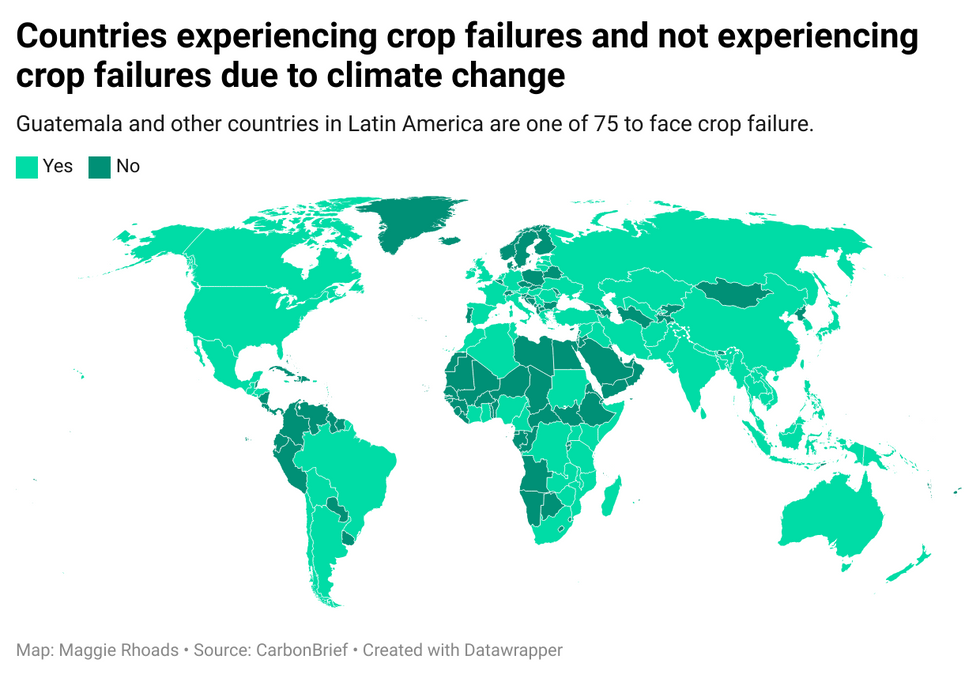 Countries experiencing crop failures and not experiencingcrop failures due to climate change Maggie Rhoads
Countries experiencing crop failures and not experiencingcrop failures due to climate change Maggie Rhoads
The specialist said USAID mainly partnered with the country’s local or national governments to create projects catered to communities. But climate change is not only affecting agriculture as the climate specialist also said they worked on projects relating to combating climate change.
“Our agenda was really looking across all of our sectors, food security, water security, health education, across all of these issue sets, and ensuring that adaptation was built into those efforts,” the climate specialist said.
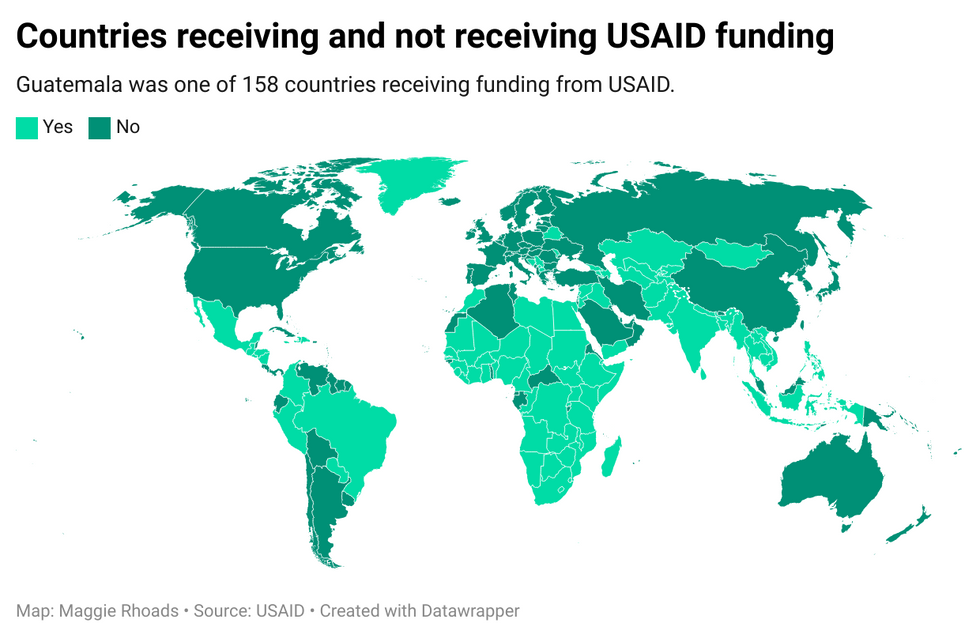 Countries receiving and not receiving USAID funding Maggie Rhoads
Countries receiving and not receiving USAID funding Maggie Rhoads
Even though the UVG Climate Smart Agriculture Project shut down, Cifuentes Velásquez said he is thankful for the work he accomplished with the help of the U.S. government but recognizes the country has their own interests they want to adhere to.
“We recognize the money that is used for foreign aid comes from the American people,” Cifuentes Velásquez said. “So we are really grateful for that.”
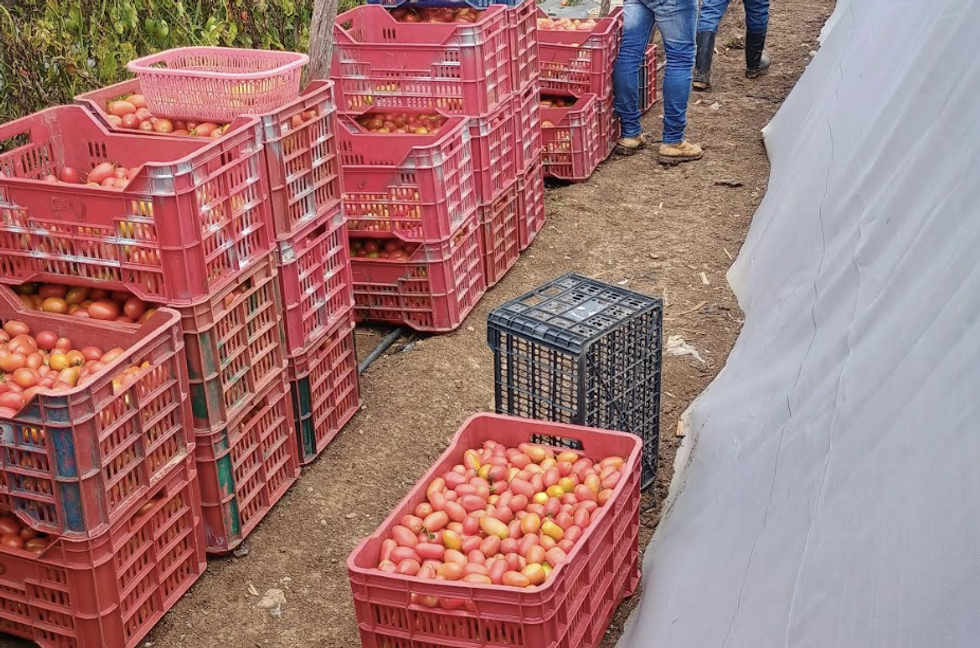 Tomatoes grown by Guatemalan farmers with help from the UVG Climate Smart Agriculture Project. Courtesy of Rolando Cifuentes Velásquez.
Tomatoes grown by Guatemalan farmers with help from the UVG Climate Smart Agriculture Project. Courtesy of Rolando Cifuentes Velásquez.
Editor’s Note: Interviews with Maria Lopez and Miguel Santo Miculax were translated from Spanish to English by Valeria Garaycoa.
Maggie Rhoads is a student journalist attending George Washington University School of Media and Public Affairs. At The Fulcrum, she covers how legislation and policy are impacting communities.





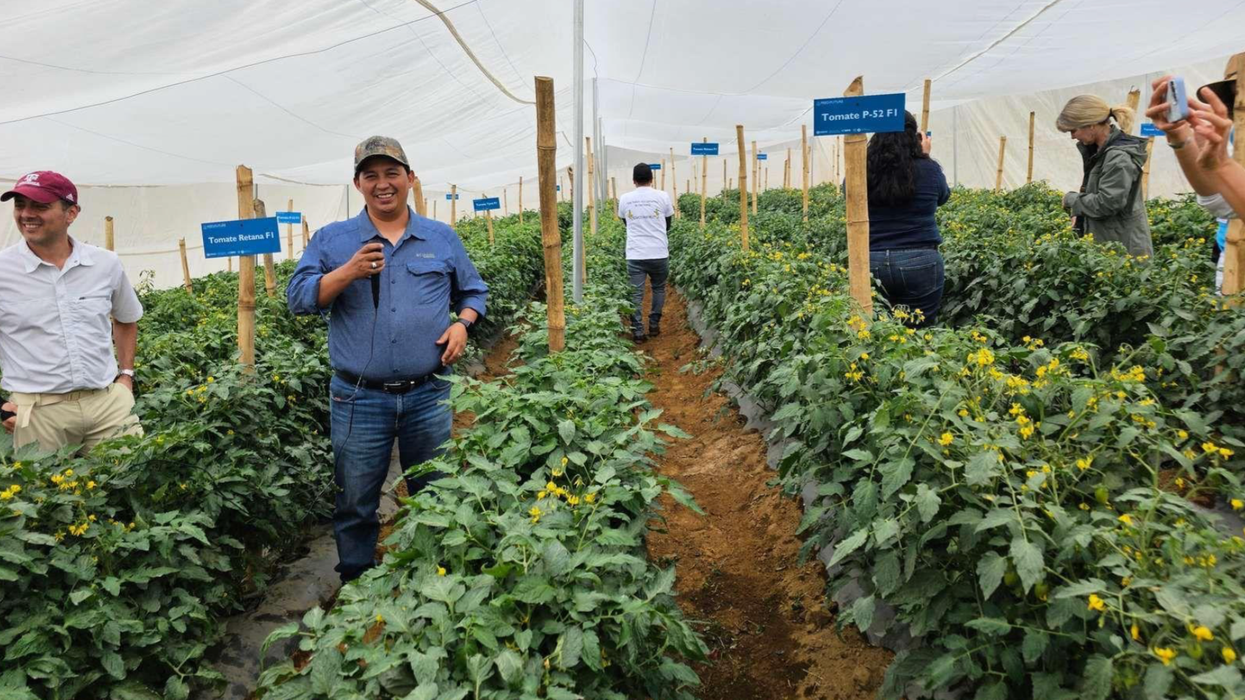














Marco Rubio is the only adult left in the room